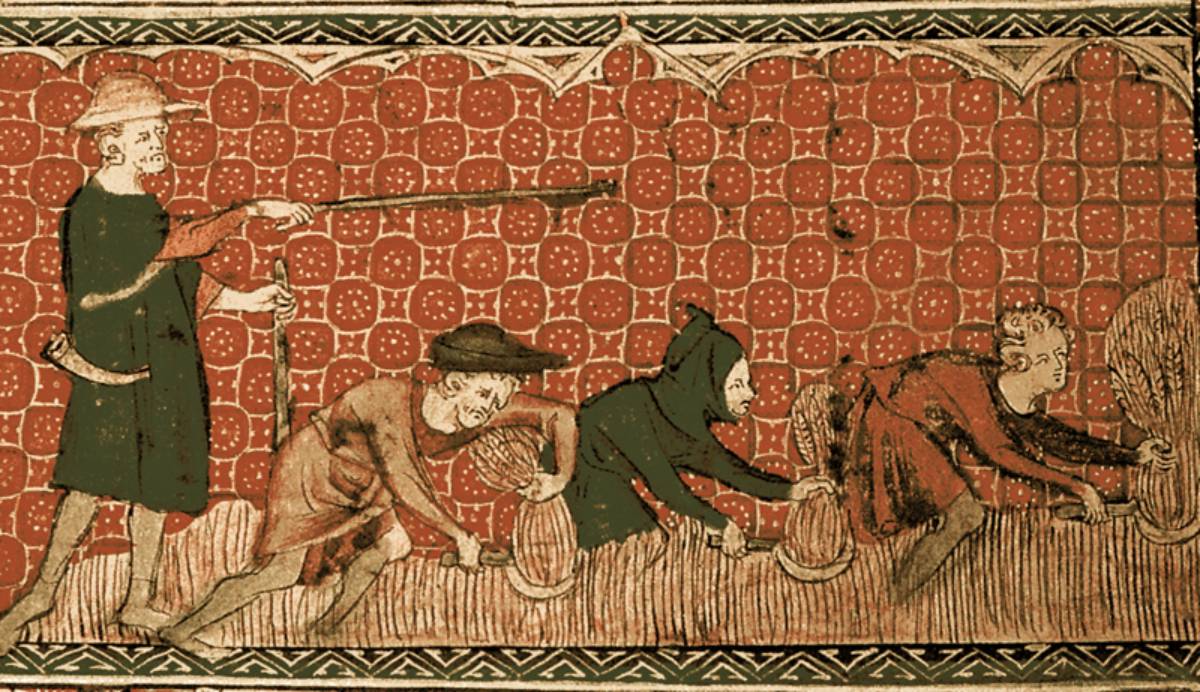To these widely varying social and political combinations scholars give the name feudalism. Feudal institutions were the arrangements that made survival possible during the early Middle Ages. The arrangements were made between important people who were concerned with maintaining order, though the customs that evolved also applied to the masses of population. One of the most influential arrangements was the war-band (or Gefolge) of the early Germans (or the comitatus, as Tacitus called it in Latin). In the war-band the leader commanded the loyalty of his followers, who had put themselves under his direction for fighting and for winning booty. Chief and followers consulted together before a raid or before making peace; those who disagreed might go and serve another chief; booty was divided among all the fighters.
In the Roman provinces, too, local landowners often built their own private armies, while in Rome itself the magnates had long maintained their groups of clients, to whom they acted as patron and gave legal protection. When a humble man wanted to enter the client relationship, he asked for the patrocinium of the great man and secured it by performing the act of commendation, recommending or entrusting himself to the patron. He remained free, obtaining food and clothing in exchange for his services, whatever they might be. If the man was of the upper classes, he was called fidelis, a faithful man. By the Carolingian period, the term vassus, originally denoting a man of menial status, had come to mean a man who rendered military service to his patron, or lord. To be a vassus, or vassal, meant no disgrace; it was the new name for status gained by the act of commendation.
A Roman patron sometimes retained title to a piece of property but granted a client temporary use of it, together with the profits to be derived from it, so long as he held it, often for life. The Romans used the term precarium for this kind of tenure, and the Carolingian rulers commonly adopted the old practice—sometimes using the old Roman term, sometimes the newer beneficium (benefice), to describe land temporarily held by a vassal in exchange for service. By the year 1000 the act of becoming a vassal usually meant that a man got a benefice; he might even refuse faithful service or loyalty unless he was satisfied with the land he received.
In the later Carolingian period, the benefice came more often to be called feudum, a fief—the term that has given us the words feudal and feudalism. When the benefice became a fief, it also became hereditary. Though title to the fief remained with the lord who granted it, the fief itself passed, on the death of a vassal, to the vassal’s heir, who inherited with it the obligations to serve the lord and his heirs.
The man who received a fief often got with it certain rights to govern the farmers who lived and worked on the lands that made it up. This practice, too, had its precedents. In late Roman times the emperors had often granted an immunity to those residing on their own estates—an understanding that imperial tax collectors or other law-enforcing officials would stay away from the inhabitants. Because the immunity exempted the farmers from onerous duties, it was hoped that they would enjoy their privileged status and therefore stay put and supply the emperor with predictable quantities of badly needed produce.
The Frankish kings adopted this practice, sometimes extending it to lands of the church and even to those of private proprietors. By the tenth century an immunity meant that the king undertook to keep his officials off the privileged lands and that the holder of the lands would himself perform such governmental functions as collecting taxes, establishing police arrangements, and setting up a court of justice.
From late Roman times, too, came the local offices of duke and count. Originally military commanders, they took over civil authority as the power of the central government relaxed. In Frankish times they were sometimes very powerful rulers, kings in all but name. In the disorders of the Carolingian decline, these offices gradually became hereditary; at the same time the dukes and counts were the vassals of the Carolingians. So the title and office, the duties of the vassal, and the fief (or territory that went with the office) all became hereditary.

